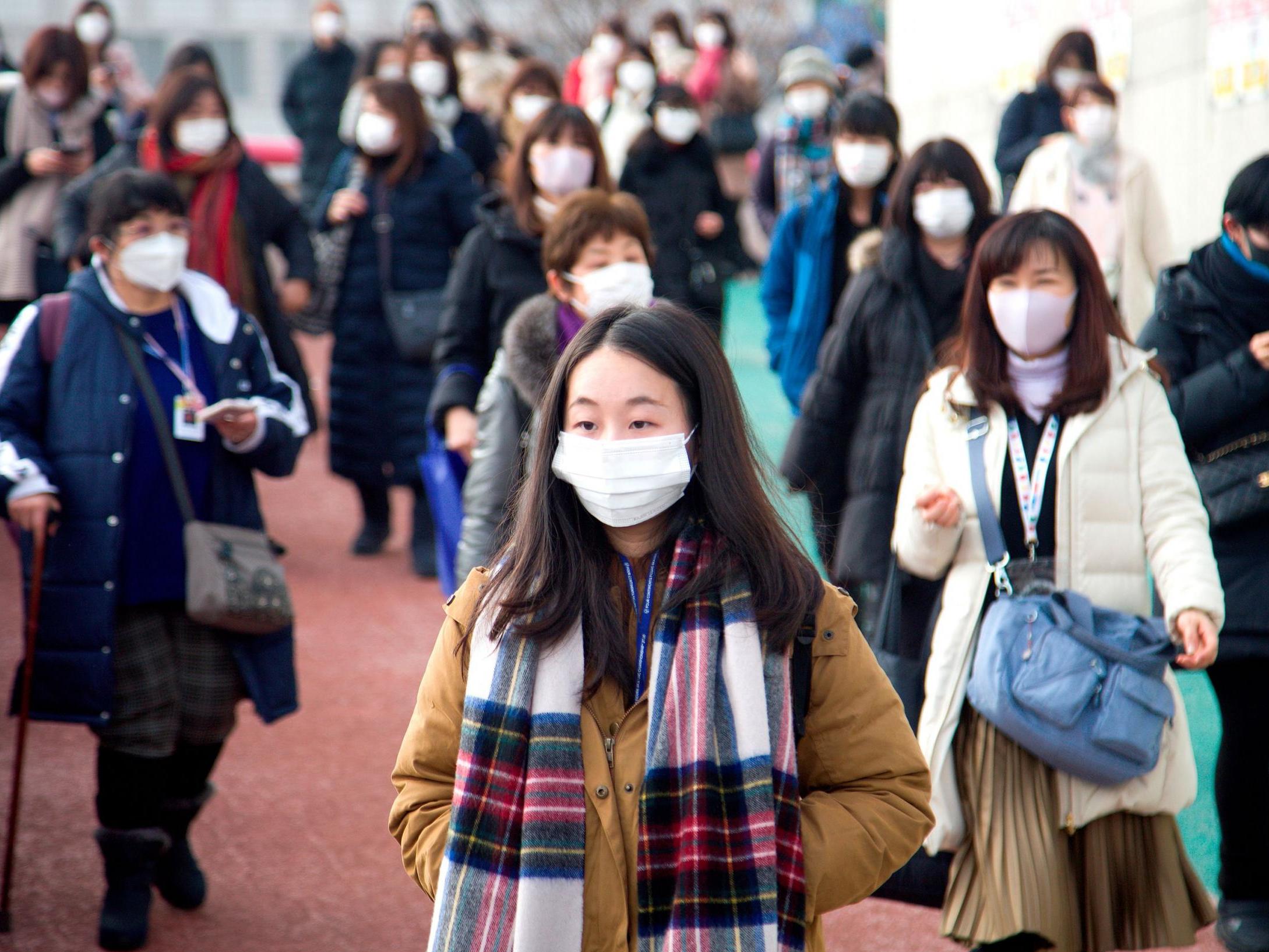The real coronavirus super-spreader is the global economy
Editorial: The financial effects of coronavirus may soon become apparent. So much so that the old saying might be adapted – when China catches a cold, the world economy gets pneumonia

Unpleasant and misleading as the label is, the story of the British coronavirus “super-spreader” gives an indication of how easily transmitted such a virus is in a world of (relatively) cheap and easy travel.
Steve Walsh, to grant him the dignity of his correct moniker, picked up the infection himself at a conference in Singapore, before unwittingly infecting some more people at a ski resort in France and again on his return home to East Sussex. Fortunately Mr Walsh, who is also a scout leader going by the more complimentary nickname Shere Khan, sought medical attention before he met any of his young charges and has made a recovery.
The reported incidence of infections and fatalities is on an upward trend. Now, more than 40,000 individuals, mostly in China, are believed to be harbouring the coronavirus, and deaths from it, again mostly in China, have crept above the 1,000 mark. Despite some draconian restrictions on travel within and from China, and from other territories such as Singapore, Korea and Japan, there is no doubt that the virus will spread.
The 1 per cent fatality rate associated with coronavirus is of little comfort, though swift intervention after experiencing extraordinarily high temperatures can effectively deal with the virus, at least so far.
The coronavirus, then, is a global phenomenon, both in epidemiological terms but also in economic terms. Past outbreaks of virulent influenza in east Asia, such as avian flu, did not disrupt the global economy so badly because even a decade or two ago China’s re-emergence into the world economy was still incomplete.
Today, China accounts for 25 per cent of world manufactures, and the effects of coronavirus on global supply chains may soon become apparent. As movement of goods out of Wuhan and the rest of China and east Asia tighten, the more vital components for use in industry elsewhere in the world will grow scarce.
Car factories operating on just-in-time principles in Mexico or Sweden could find themselves in severe difficulty if some vital Chinese electronic pack or transponder is stuck on an embargoed container ship halfway across the world. Western consumers too will feel the effects as the likes of Apple find their stocks running low.
In global trade terms, the virus could scarcely have emerged at a more critical juncture. With the US-China trade war entering a period of fragile truce, the virus is already affecting shipping volumes, which will eventually have a knock-on effect on economic activity.
In the oil market the coronavirus is already being styled as a “black swan” event, the kind of unforeseeable shock that shakes sectors badly when they are unprepared for it. The decline in demand for oil from China fits the definition perfectly, with the reverberations spreading to the Gulf economies and beyond. The banking crisis of 2009 showed just how rapidly the financial ripples can cross continents and capital markets.
Such are some of the unanticipated side effects of globalisation, the old saying might be adapted – when China catches a cold, the world economy gets pneumonia. From tourist cruise operators to coffee shops to copper traders – the effects of a sudden downturn in China are felt worldwide. After all, China is, on some measures, already the globe’s largest economy.
Even so, with the effects of the coronavirus unknown beyond the confidence that it can be treated relatively straightforwardly, there is no need for any global panic to exacerbate the pandemic (if such it proves to be).
A century ago the world faced the first globalised pandemic, the Spanish flu, which puts matters into perspective. Despite the name, it did not in fact originate in Spain (its origins are disputed) but it spread rapidly because of the upheavals of the First World War. With unprecedented international movements of troops, shipping, civilians and refugees, the influenza spread as no mere plague had before. By the time the Spanish flu subsided towards the end of 1920, it had infected about 500 million people and killed some 50 million – a very high mortality rate.
Distant as the outbreak may feel now, it is still a sobering thought that around 3 per cent of the population of the entire world died from the Spanish flu. Medical science has moved on a long way since then, but so have modern methods of travel and mass transportation (after all, commercial air flight was in its infancy then). So the chances are that the coronavirus, despite the best efforts of the authorities, will eventually make its presence known on a global basis, just as the Spanish flu eventually reached remote Pacific islands and the Arctic.
The tardy and secretive response of the Chinese government probably gave the virus an opportunity to get on the move before anyone realised how serious it might become.
It is a world where the super-spreader vector is not any unfortunate traveller who happens to get infected with the coronavirus and unknowingly passes it on to friends, family and strangers alike; the super-spreader is really the global economy and the revolutions in transportation it has brought with it.
There seems to be some sense that blockading China or east Asia will in some way quarantine the coronavirus. Apart from the impracticality of following such a policy indefinitely, it is probably too late to stop the virus going global – but it is not too early for the public health authorities to start to make more extensive contingency plans for when the coronavirus reaches their citizens, as it surely will.
Join our commenting forum
Join thought-provoking conversations, follow other Independent readers and see their replies
Comments